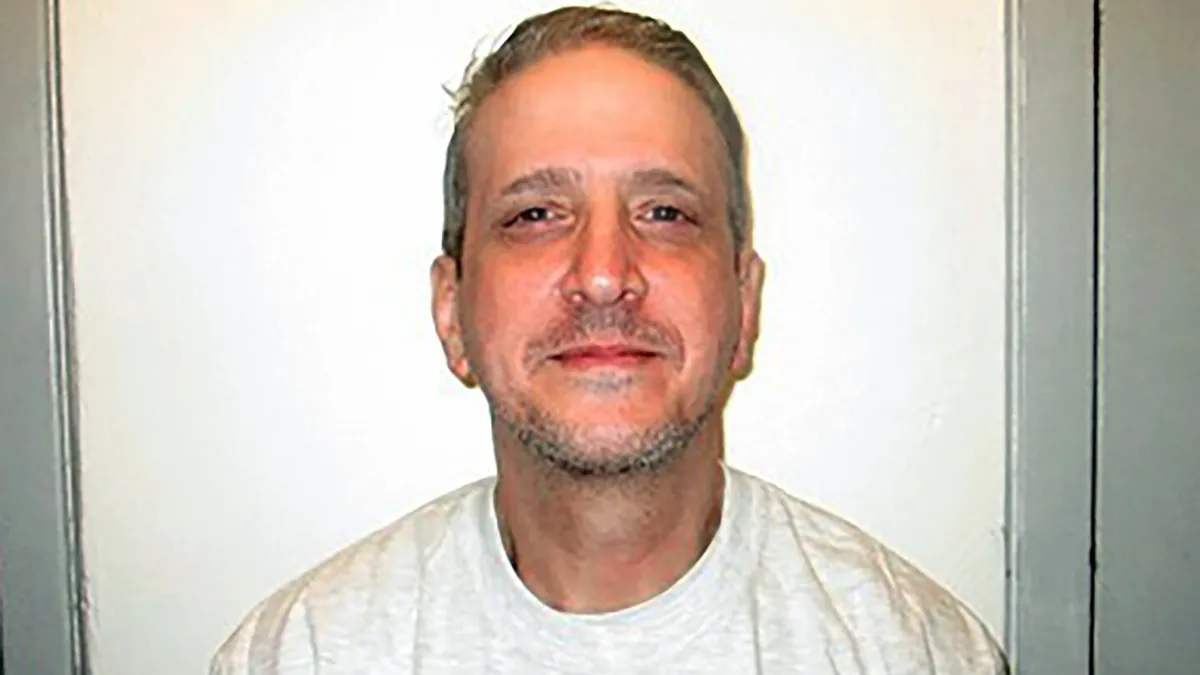
WASHINGTON (AP) — In a significant legal development, the Supreme Court has overturned the murder conviction and death penalty of Richard Glossip, an Oklahoma man who was found guilty of killing a motel owner. Glossip has consistently maintained his innocence and has evaded numerous execution attempts by the state.
Following the ruling, Glossip’s wife, Lea, expressed her relief, calling the decision “an answered prayer.” The Supreme Court determined that prosecutors violated Glossip’s constitutional right to a fair trial by allowing a key witness to deliver false testimony. This case has seen a rare alliance between Glossip’s lawyers and the state’s Republican attorney general, both advocating for a retrial.
Justice Sonia Sotomayor, writing for five justices, stated, “Glossip is entitled to a new trial.” This landmark decision was covered extensively, with AP correspondent Ed Donahue reporting on the court's move to vacate the death sentence.
Justices Clarence Thomas and Samuel Alito dissented, favoring the upholding of the conviction and death sentence. Justice Amy Coney Barrett suggested that a state appeals court should determine the subsequent steps. Thomas emphasized the interests of victim Barry Van Treese’s family, who had expressed a desire for Glossip’s execution.
Glossip’s attorney, Don Knight, lauded the court’s decision, emphasizing the importance of fairness in the judicial system. “Today was a victory for justice and fairness,” Knight noted, highlighting that Glossip will finally receive the fair trial he has long been denied.
Currently housed at the maximum-security Oklahoma State Penitentiary in McAlester, Glossip is expected to remain imprisoned until the state decides on a retrial, as stated by Phil Bacharach, a spokesman for Oklahoma Attorney General Gentner Drummond. Oklahoma County District Attorney Vicki Behenna plans to review the Supreme Court's opinion before determining further actions, having previously stated she would not seek the death penalty in this case.
Glossip was convicted in the 1997 killing of Van Treese, his former employer, in what was alleged to be a murder-for-hire scheme. Although Glossip has denied the murder, another man, Justin Sneed, admitted to the crime, claiming Glossip promised him $10,000. Sneed, who received a life sentence, was the prosecution's key witness.
Attorney General Drummond, though skeptical of Glossip’s innocence, acknowledged new evidence that suggested an unfair trial. This evidence showed that prosecutors were aware of Sneed’s false testimony regarding his psychiatric condition and medication. Additionally, concerns were raised about destroyed evidence, including motel receipts and other items, that could potentially prove Glossip’s innocence.
The court faced the task of deciding if Glossip’s rights were violated due to withheld evidence and whether the Oklahoma court’s decision should stand. Justice Neil Gorsuch did not participate in the case, having been involved at an earlier appellate stage.
Oklahoma scheduled execution dates for Glossip nine times, and he has endured three “last meals” during his wait. The Supreme Court previously halted his execution in 2015, only to later uphold Oklahoma’s lethal-injection process by a narrow margin. This latest decision marks a pivotal moment in Glossip's long-running legal saga.
The Associated Press writer Sean Murphy contributed to this report from Oklahoma City.